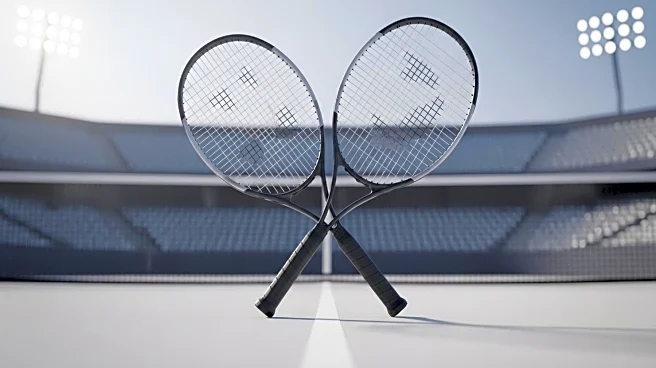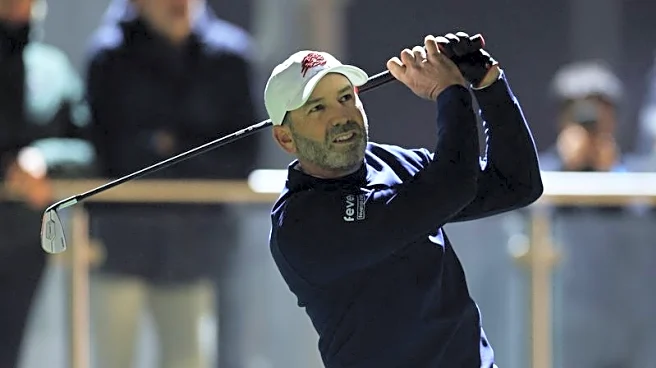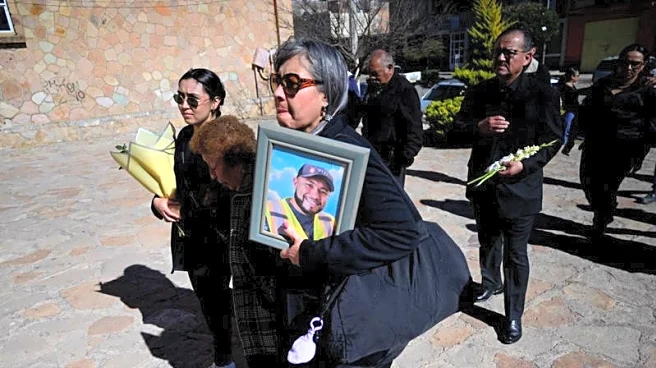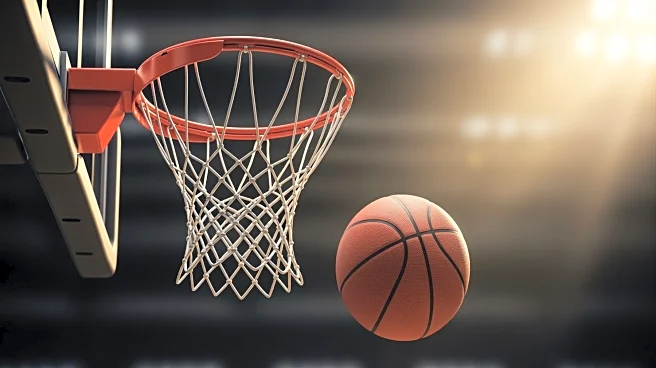What's Happening?
Venus Williams, at 45 years old, has reached the last 16 in the US Open doubles alongside her partner Leylah Fernandez. This marks the first time since the 2018 French Open that Williams has advanced to this stage in a grand slam. The duo formed a strong partnership, defeating No. 6 seeds Lyudmyla Kichenok and Ellen Perez in the first round, followed by a victory over Ulrikke Eikeri and Eri Hozumi with scores of 7-6(1), 6-1 in the second round. Fernandez, who reached the US Open singles final in 2021, expressed admiration for Williams, highlighting her as an inspiration. The pair overcame early challenges in their matches, rallying from a break down in the first set to secure their place in the next round.
Why It's Important?
Venus Williams' advancement in the US Open doubles is significant as it showcases her enduring talent and influence in tennis, despite her age. Her performance continues to inspire both fans and fellow players, including Leylah Fernandez, who praised Williams' motivation and love for the sport. This achievement also highlights the potential for veteran athletes to compete at high levels, challenging age-related stereotypes in sports. Williams' presence in the tournament draws attention to the longevity of athletic careers and the impact of experience and resilience in competitive settings.
What's Next?
Williams and Fernandez are set to face either No. 12 seeds Ekaterina Alexandrova and Shuai Zhang or the British pair Katie Boulter and Sonay Kartal for a place in the quarterfinals. Their continued success could further cement Williams' legacy and influence in tennis, while Fernandez gains valuable experience alongside a seasoned partner. The upcoming matches will test their partnership and ability to adapt against different opponents, potentially leading to further achievements in the tournament.
Beyond the Headlines
Venus Williams' participation in the US Open at her age raises discussions about the evolving nature of athletic careers and the role of experience in sports. Her ability to compete at a high level challenges conventional views on age and performance, encouraging a broader acceptance of veteran athletes in competitive arenas. This development may influence how sports organizations and fans perceive aging athletes, potentially leading to more inclusive practices and recognition of their contributions.











